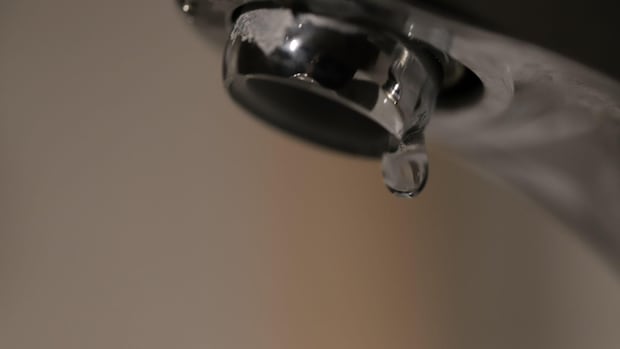New BrunswickOn the heels of a summer drought and with record-low groundwater levels in some areas, the province is urging New Brunswickers to continue conserving water.A New Brunswick water report shows below-average precipitation with no significant relief expectedKatelin Belliveau · CBC News · Posted: Nov 06, 2025 3:15 PM EST | Last Updated: 1 hour agoListen to this articleEstimated 4 minutesThe audio version of this article is generated by text-to-speech, a technology based on artificial intelligence.The New Brunswick government suggests residents turn off the tap when brushing their teeth, shorten their showers and consider installing low-flow faucets to continue conserving water this winter. (Marc-André Turgeon/Radio-Canada)With a slim chance of significant rain between now and the New Year, the province is urging New Brunswickers to conserve water this winter.”Until significant precipitation returns, every drop saved counts,” Environment Minister Gilles LePage said in a statement this week.The province is still experiencing below-normal rain levels for this time of year, according to a recent provincial water report.The New Brunswick Water Association said the colder months will make it even more difficult for wells to be replenished.”The ground will freeze up and there’s no water going into the ground,” executive director Roger Roy said. “Depending on the amount of snow that we have this year … we might see wells drying up next summer also.” WATCH | Why freezing temperatures could worsen N.B. drought:Worry about drought in N.B. so great the province is urging winter water conservationThe province only saw 44 per cent of its usual precipitation in September, according to the New Brunswick Water Resource Report.That’s why the province is suggesting people continue the habits they picked up during the recent summer drought, such as taking shorter showers and not washing cars.It also suggests waiting until loads are full before using laundry machines and dishwashers, turning off the faucet when brushing your teeth and installing low-flow faucets.The eastern half of New Brunswick experienced “extreme drought” in September, according to the Canadian Drought Monitor. The Canadian Drought Monitor, created by Agriculture and Agri-Food Canada, offers a monthly snapshot of levels of drought across the country. (Agriculture and Agri-Food Canada)Some southern regions like Fundy-Albert fell into the most severe category on the national scale, “exceptional drought.” According to the New Brunswick Water Resource Report, there were one or two rain events in September. And those only brought “light to moderate rainfall,” amounting to 44 per cent of typical September rainfall.Though parts of the province have seen a few rainy days lately, Roy said it’s not enough for water to seep several feet down into well systems.”If you take a shovel, and you go out in your backyard and you dig a hole, you’ll probably see right now … maybe an inch or so of wet ground,” he said.”It can take months. Depending on the amount of rain, it can take years.”According to the province’s water resource report, Environment Canada is predicting above average temperatures and below normal precipitation this month and in December.Some near Miramichi forced to re-dig wells Miramichi experienced record-low ground water levels in September, according to the New Brunswick Water Resource Report. (Shane Fowler / CBC)Miramichi experienced record-low groundwater levels in September, according to the provincial report.Staff members who work on supplying residents with water said they are monitoring levels closely as they rely on 19 municipal wells to pump an average of 20 million gallons of water into the area every day.”It’s definitely going to have an impact for sure,” Jay Shanahan, director of public works for the City of Miramichi, said.A number of residents living outside the city have had their wells run dry because of drought, Shanahan said, and more people may have to consider digging new wells even deeper.”Most of the ones I’ve talked to are within that 100 [feet] or less parameter,” he said. “That seems to be where the issue is.”Municipal wells in Miramichi are typically 400 feet, o about 122 metres, deep and can cost more than a million dollars to dig, he said.Shanahan’s household is on a private well, and he himself has considered redrilling his well — but that comes at a cost.He for an average residential home, the cost would be about $10,000, an estimate he’s heard from plumbers and well drillers.There are signs to look for that indicate a drying well, Shanahan said. Water might be dirtier, pressure might be lower and there may be more air in the flow of water.Grand Manan Island saw several wells dry up this summer, but Mayor Bonnie Morse said she is hearing from residents that a few recent rainy days have helped.”If we could get another couple of nights of rain, I think that would go a long way to easing people’s concerns,” she said on CBC’s Shift.”Conserving water is not something we should think of only in a drought,” Roy said. “In New Brunswick, we have lots of groundwater and we take water for granted. … It’s not something we should do.”ABOUT THE AUTHORKatelin Belliveau is a CBC reporter based in Moncton.
Province urges people to conserve water this winter as drought conditions remain ‘extreme’











